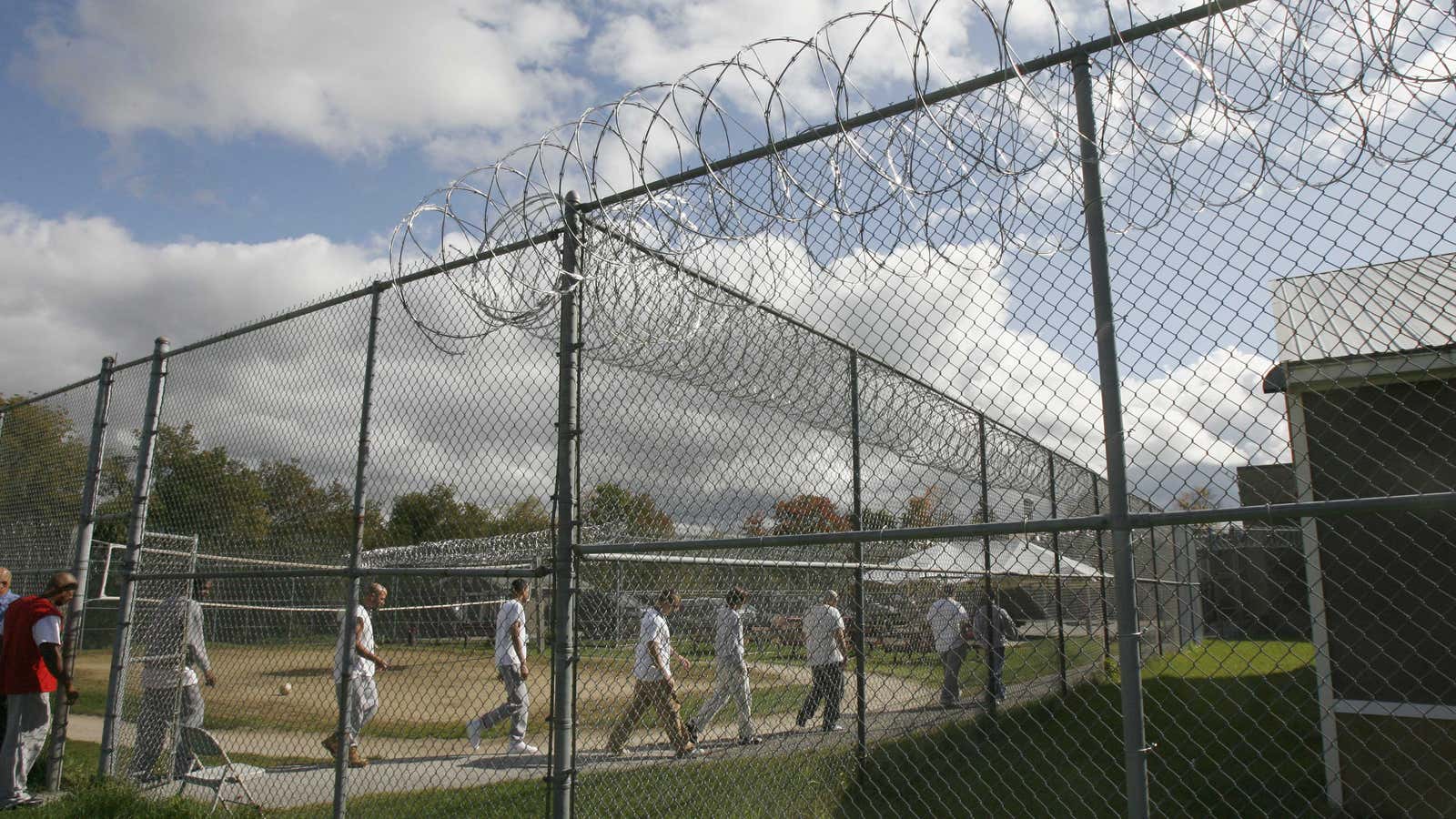The opioid crisis in the US is pushing local authorities to use some unconventional methods. A judge in White County, Tennessee ordered that jail inmates can get 30 days shaved off their sentences if they choose to undergo permanent or semi-permanent birth-control procedures. He says he wants to stop parents from passing on their addictions to the next generation.
Male inmates can get a vasectomy on the state’s dime, and women can get a Nexplanon implant. Since the program began in May, 32 women and 38 men have signed up. Nexaplanon lasts up to three years. Doctors can now reverse vasectomies, but it can be a costly procedure that doesn’t guarantee success.
The judge, Sam Benningfield, told local TV station News Channel 5 that he sees it as a solution beneficial to everyone involved. “I hope to encourage them to take personal responsibility and give them a chance, when they do get out, to not to be burdened with children,” he said. “I understand it won’t be entirely successful but if you reach two or three people, maybe that’s two or three kids not being born under the influence of drugs.”
In addition to the 30-day jail time “credit,” inmates can get an additional two days taken off if they participate in an education program about the neonatal consequences of drug abuse. Between 1999 and 2013, rates of so-called neonatal withdrawal have tripled in the US, according to the Centers for Disease Control and Prevention. Babies born with the syndrome, linked with opioid use, experience withdrawal symptoms like seizures, gastrointestinal problems, and issues with the central nervous system.
In Tennessee, overdose deaths have been on the rise, and the vast majority are a result of opioid abuse, according to the state’s department of health report obtained by The Tennessean.
But offering inmates sterilization is controversial. The local district attorney general told CBS News that the solution is potentially unlawful, and that it was not the government’s place to offer such solutions. The American Civil Liberties Union had some stronger words in a statement:
“Offering a so-called ‘choice’ between jail time and coerced contraception or sterilization is unconstitutional. Such a choice violates the fundamental constitutional right to reproductive autonomy and bodily integrity by interfering with the intimate decision of whether and when to have a child, imposing an intrusive medical procedure on individuals who are not in a position to reject it.”
